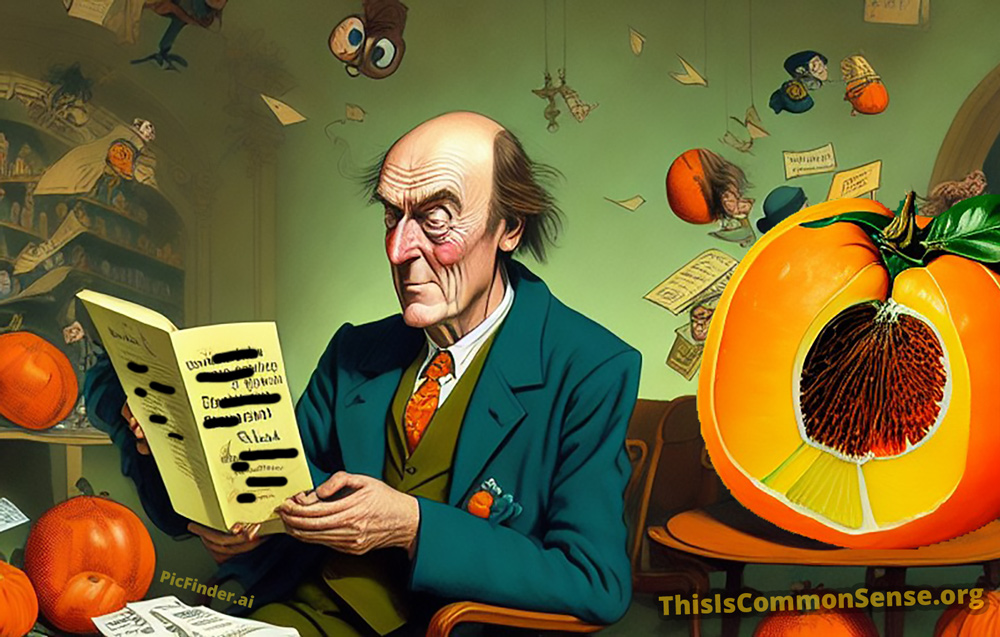Two centuries after the heady days of Elizabethan drama, Thomas and Henrietta Bowdler produced The Family Shakespeare.
In it they infamously “bowdlerized” the Bard.
History has accelerated. Roald Dahl, the beloved author of arch children’s books (and more adult fare, too), had been dead only 33 years when it came out that his publisher is sanitizing his books.
For the children.
For wokeness.
It’s not nice, you know, to call someone fat. Or to suggest that witches wore wigs because they were bald.
So snip-snip and a trip to the thesaurus later, and British kids can now read the word “enormous” instead of “fat.” And learn, via addition (something the Bowdlers didn’t dare: they only made careful cuts), that “there are plenty of other reasons why women might wear wigs and there is certainly nothing wrong with that.”
Salman Rushdie called this “absurd censorship” and said that the culprits, Puffin Books and the Roald Dahl estate, “should be ashamed.”
The backlash has been huge, but the umbrella publishing house, Penguin, insists the unexpurgated Dahl will still be available, in a “Roald Dahl Classic Collection.”
Shades of New Coke versus Classic Coke!
In America, Penguin won’t even try to publish its sanitized editions.
There are several footnotes to the story.
One: a four-decades old conversation “has come to light, revealing that [Dahl] was so appalled by the idea that publishers might one day censor his work that he threatened to send the crocodile ‘to gobble them up.’”
Two: Ian Fleming’s James Bond is getting a similar treatment.
I’m reminded of the all-too-hungry crocs in Live and Let Die.
And where Dahl’s gobble-uppers should be when publishers place their toes in censorious waters.
This is Common Sense. I’m Paul Jacob.
Illustration created with PicFinder.ai
—
See all recent commentary
(simplified and organized)

3 replies on “Roald’s Revenge”
Glad I have the originals.
.
I wonder if they will try that with “Atlas Shrugged”.
Please recall what Winston’s job was in “1984” It is clear the authors’ contracts with their publishers are more in need of revision as we are not in need of revisionist history.
Agreements were secured with the estatesof Dahl and of Fleming. Earlier, the estate of Geisel made the decision to withdraw some of his books.
Moreover, in the case of trusts, courts have looked the other way as trustees have decided, sometimes quite publicly, to inkblot terms.
In cases of recalcitrantly censorial heirs and assignees, authors and the rest of us are helpless.